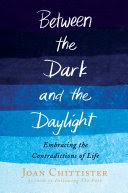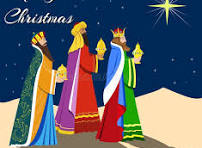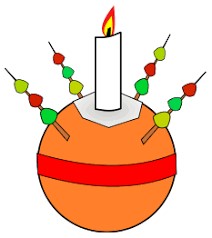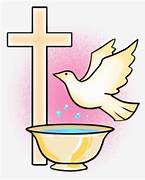A Clash of Codes

Joan Chittister. Between the Darkness and the Daylight. P 76 Luke 13:10-17
This little story stands alone. It is not found in any of the other Gospels. Luke, who was writing in the early decades of the 2ndC, must have really wanted to make a point, so he conjured up this story that has echoes of themes from other writings but no direct reference. Scholars think Luke (or whoever the author was) was writing well after the split had occurred between Judaism and Christianity- as the new religion was becoming known. There were, of course, many Jewish-Christians in the mix alongside Gentile-Christians. This was sometime after Paul and his followers had separated from James and the Jerusalem Christians. Luke-Acts engages with the travels and missionary work of Paul among the gentiles, as Rome reasserts it colonial power. So there was a bit of what I’m calling a ‘clash of codes’ going on. This is what Luke is addressing with his provocative story! The clash of the codes: Jews, Christians and Romans against a Greek background!
Of course, the ‘bent over woman’ around which the story is constructed is not a single historical figure, but rather a representative of many groups in a society who bear the burden of marginalisation and shame on account of physical, cultural or ‘social difference’ by which they are alienated from the mainstream by those who determine and ‘police’ the norms of that ‘mainstream, as well as the inclusion and acceptability requirements. A woman, in a patriarchal society, is immediately of second-class status, and the woman in this story also has a physical deformity to double her burden and to add cultural shame. This was a significant picture of marginalisation Luke was conveying.
Luke seems to have a particular interest in the wellbeing of those who are different from the codified ‘norm’ ; such as the role and social status of women -particularly those who are alone without a male ‘protector’, and those struggling with the issues of poverty and other forms of marginalisation. He seems to be challenging his hearers to consider what healing and restoration to the community look like, and how it happens.
The clash of codes, or perspectives in this morning’s story is very clear:
Institutional preservation, and liberating love
A legalistic view of holiness, and an embodied view of wholeness
A system that maintains control ,and a holy day that sets people free.
In the midst of different groups working to assert their cultural and religious identity and to preserve traditions and inclusion requirements, Luke’s message seems to cut right across. All the ‘othering’, all the ‘cancelling’ (the ultimate form of cancelling being death) of those who are different and ‘don’t fit’, is overturned, and Luke offers an alternative that says salvation, or God’s healing love, is for all humankind. Everyone is ‘in’, no-one is ‘other’.”
He is offering an ethical alternative to the ‘othering’, to the ‘cancelling’, whether the root of the ‘othering’ be in legalism, religious tradition and purity, or cultural cohesion. He seems to be inviting people to choose what they are prepared to stand for, challenging them to remember they claim to be the community of Christ!
“Choose life, choose to be a life-giver; choose to stand tall in the face of all that weighs you down and deprives you of health and well-being, that deprives you of community and security.” He is saying. “Choose to include everyone in the lifegiving community of Christ.”
I called the story ‘provocative’ deliberately. I think Luke was trying to bait the preservationists, to bait those who were ‘cancelling’ out people who were different, who didn’t fit or challenged the cultural norm they were preserving unchanged! After all, he could have told the story just a bit differently! For example, after 18 years he could have waited just a few more hours in his story for Jesus to affect the healing and then it would not have caused such a fuss. But no, he tells a story in which Jesus aims for maximum fuss and is baiting the leader of the synagogue, who, after all, was only doing his job: trying to defend a precious tradition. A tradition that kept the Sabbath as a holy day of rest that had been upheld as such since after the exodus from Egypt – when the enslaved peoples had worked without rest. From this perspective the Sabbath was a precious gift of resistance!
We are used to this sort of ‘clash of codes’ today where there could be something to be argued for from various points of view. There are all sorts of examples of it in our society, minor examples perhaps you could say…
And perhaps it is easier to identify them if we look to our past for examples than in our present.
· No smoking in public areas or freedom to smoke wherever you like
· Equality for women or the continuation of male priority
· Equal pay for equal work – or pay stratification according to gender or race.
· Genetic modification of foodstuffs or GE free foods
· A bigger investment in the armed forces, or bigger investment in responses to the climate crisis.
· We can’t speak of a ‘clash of codes’ today without bringing our attention to the clash between Israeli Zionists and the Palestinians of Gaza. And we can’t think of this situation without pondering where health and life lie! Eighteen days, eighteen years, eighteen centuries – who will fail to give water and bread to the thirsty and the hungry, to the children and the women bent over with the burden of years?
There are lots of matters where we choose a side, and may even work to resist a change … or to bring a change … usually one side or the other comes to dominate and a law is passed, and then choice is taken out of our hands as a community of care and becomes a social norm, even a legal requirement.
This is not the clash of codes Luke is highlighting with his healing stories, not with the healing of the man with the withered arm, or the death of eighteen people when the tower of Siloam fell on them, nor this one of the woman who had been bent over and unable to stand up for eighteen years. He is not pitting one point of view over another over another expecting to change the law – religious or secular and then to police it and have those who do not conform punished or marginalised, excluded from the community or ‘cancelled’. No, Luke is offering us a different way of seeing and understanding things: irrespective of whether you fit the norm or not, the means of life and the opportunity to flourish are to be yours too. There are no special ‘insiders’ just life-givers and lovers.
It seems to me this little story is expecting us to wake up and notice all the burdens that weigh us down as community and as a society, to notice upon whom the burdens lie. The woman was not loud and demanding! She was just going about her life best she could: living with a disability, without a protector, or anyone to vouch for her.
Jesus notices.
He immediately restores her to full physical capacity.
And more, restores her to the family line by calling her a ‘daughter of Abraham’. In doing so includes her into the rights and privileges and responsibilities of being part of the community.
Then calls out the leader of the synagogue and his adherents, naming them as hypocrites.
We know what is going on in our communities and our nation, we know what is going on in our world where there are clashes between points of view – and no one is suggesting it is easy to resolve the differences. But we do have choices we can make.
· Choices that ‘include’ and hold out life for those who are vulnerable,
· Choices that challenge embedded norms that no longer offer hope and the possibility of flourishing for people other earth creatures and the earth herself in today’s world,
· Choices that offer respect and dignity to those who are ‘other’ to us who set the norm, those who are different, those whom we perhaps don’t understand.
· Choices that proclaim life and love, freedom from fear and violence, and access to the means to live with dignity are human rights and are good expectations to hold onto.
· And choices to live in ways that will protect and nurture this planet Earth, which sustains us and gives us life.
Whether these are legal requirements, religious expectations or cultural protocols we can choose this way of being, this way of living in relationships which demonstrate kindness and concern.
It is not good enough to say, “but it has always been like this”, nor to say, “it has always been done this way”, nor even to say, “they are just different from us” and then to allow such statements to excuse or justify ‘othering’ and ‘cancelling’.
As the body of Christ, we are called to proclaim the life-giving love of God for all, so it is incumbent onus to live it without waiting to be asked or coerced by legalism.




